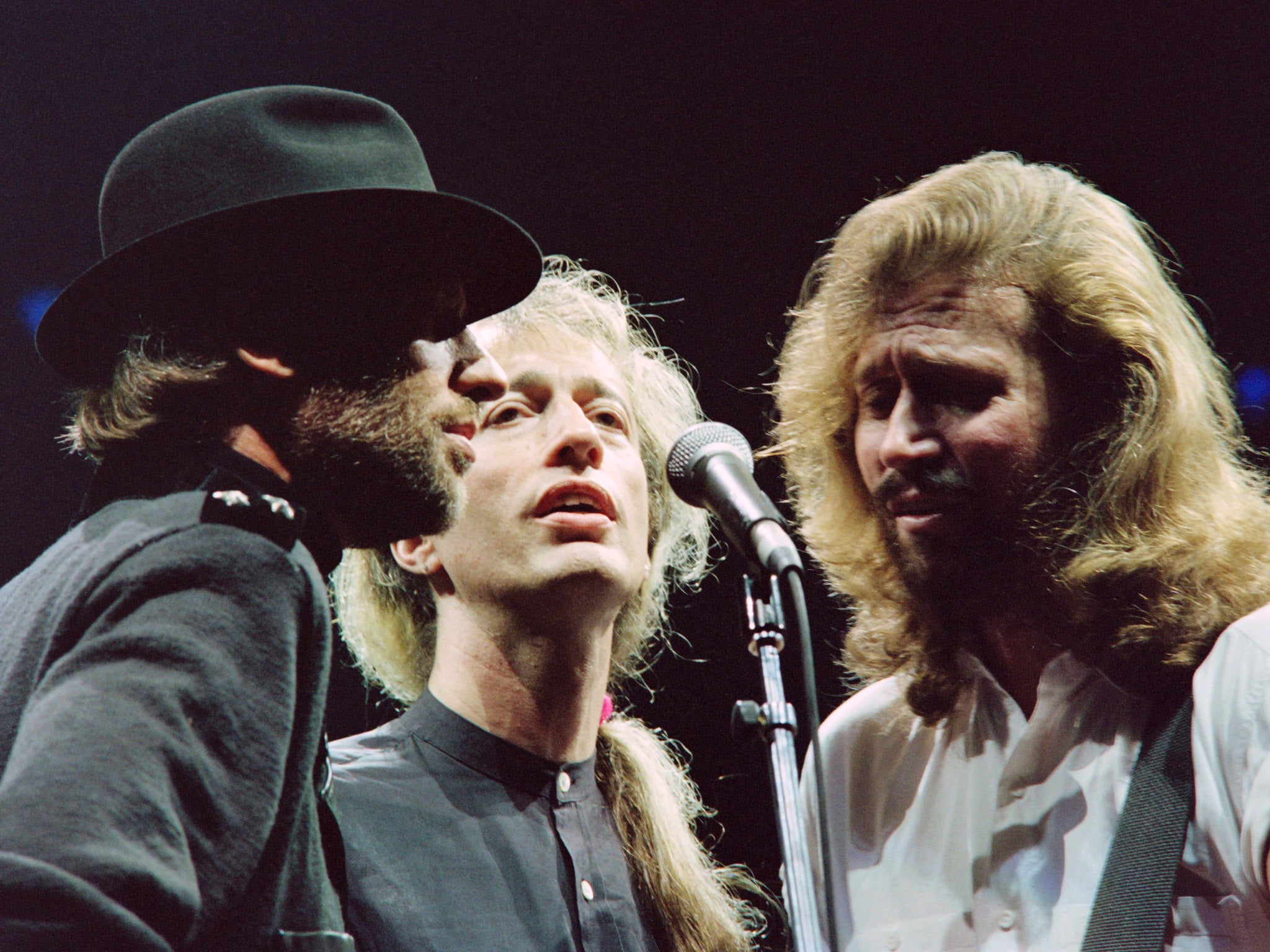Bee Gees blaring in post-Gadhafi Libya

Your support helps us to tell the story
From reproductive rights to climate change to Big Tech, The Independent is on the ground when the story is developing. Whether it's investigating the financials of Elon Musk's pro-Trump PAC or producing our latest documentary, 'The A Word', which shines a light on the American women fighting for reproductive rights, we know how important it is to parse out the facts from the messaging.
At such a critical moment in US history, we need reporters on the ground. Your donation allows us to keep sending journalists to speak to both sides of the story.
The Independent is trusted by Americans across the entire political spectrum. And unlike many other quality news outlets, we choose not to lock Americans out of our reporting and analysis with paywalls. We believe quality journalism should be available to everyone, paid for by those who can afford it.
Your support makes all the difference.Fuad Gritla, the morning host on 100.7 FM, knows his listeners in Libya's capital are grouchy, and he's trying to help.
Tripoli has not witnessed the change that many had hoped it would see a year after Moammar Gadhafi's fall. Political progress has been downright sluggish. There are lots of weapons and little security. And people here are getting more and more anxious.
"The Libyan people are very cranky, so we're trying to cheer them up in the morning," Gritla said, turning the dial up on a track from the Bee Gees. "Our slogan is 'Your voice and your voice only.' We try to give people what they want."
Radio Zone 100.7 is just one of some two dozen new radio stations to hit Tripoli's airwaves since the dictator's fall. And despite all the doom and gloom, residents say it's just one indicator that postwar Tripoli is not actually as bad as it may appear.
In fact, Tripoli is a spectacle of post-revolution paradoxes. It's a place where all of the successes and failures of the Arab Spring's most thorough revolution go on stark display side by side; where one can brave a militia gun battle and shop for designer dresses in the space of an afternoon.
For all the weapons floating around, there is relatively little crime. Libyans go to work and pick up groceries. Adults talk politics over cappuccinos. And teenagers chow down on burgers and blast pop music from their cars.
There is even Tripoland, an antiquated but popular little amusement park, where the city's residents line up to ride the miniature roller coaster on Friday nights.
Tripoli still isn't a city that anyone would call fun. And Libyans joke that's because fun was largely banned under Gadhafi, and it takes time to recover. But the fresh air of revolution has opened the city to a flood of dreamers.
There are middle-class university graduates launching quirky online start-ups from their parents' living rooms; army commanders who talk about developing a well-trained national army — once they have the money; and officials in the neglected waste management sector who wax on about their ideas for an environmental protection protocol, a concept that was totally ignored by Gadhafi.
Beneath the surface, of course, it's all a mess, locals say. This is a capital city in a country without a functioning government. The police officers directing traffic in Martyrs' Square are actually militia members. There is no designated day for trash collection, and no working court system.
The country pulled off its first democratic election for a General National Congress in July, but has yet to seat a government — in part, because protesters sometimes storm the congress while it's in session. Last week the members of congress even debated moving their body to a new city, to avoid the protests.
By far the biggest change brought by the end of Gadhafi's rule is the freedom that Libyans are now enjoying. Gritla plays foreign tunes that never would have touched the airwaves under Gadhafi's suffocating, xenophobic rule. Kids are learning French in school. And traders are importing old, ratty cars, something the old regime didn't allow.
Libyans are so free, in fact, that much of Tripoli's current trouble stems from the frustration that follows when friends, neighbors and resident militias do whatever they please.
"It's very nice now — you can have your own newspaper. You don't have to stop at the traffic lights. You can park anywhere — even on the grass. Even in America, you don't have these kinds of freedoms," said Sadat Elbadri, the head of Tripoli's self-appointed local council, with no small amount of irony.
As the seat of the old regime, Tripoli suffered less under Gadhafi than Libya's more neglected backwaters. And for that reason, there is more hope to work with these days, residents said.
Elbadri says his local council lacks the budget to do much of anything, but he has grand ideas. "I even did a water test on Tripoli water," he said proudly, then added with a laugh: "It's not that good."
No, Tripoli's residents lament, progress has not come as quickly as they hoped. Revolution wasn't a silver bullet.
But at least, Elbadri and others said, freedom has yielded a cacophony of free expression and a newly awakened capital city trying to make sense of it all.
"The good thing that we can see now in Tripoli is that people can criticize me, or the president, or whoever," said Ahmed Langhi, a member of the national congress from Benghazi. "They can raise their voices. And that is not a simple thing."
- - -
Washington Post special correspondent Ayman al-Kekly contributed to this report.
Join our commenting forum
Join thought-provoking conversations, follow other Independent readers and see their replies
Comments